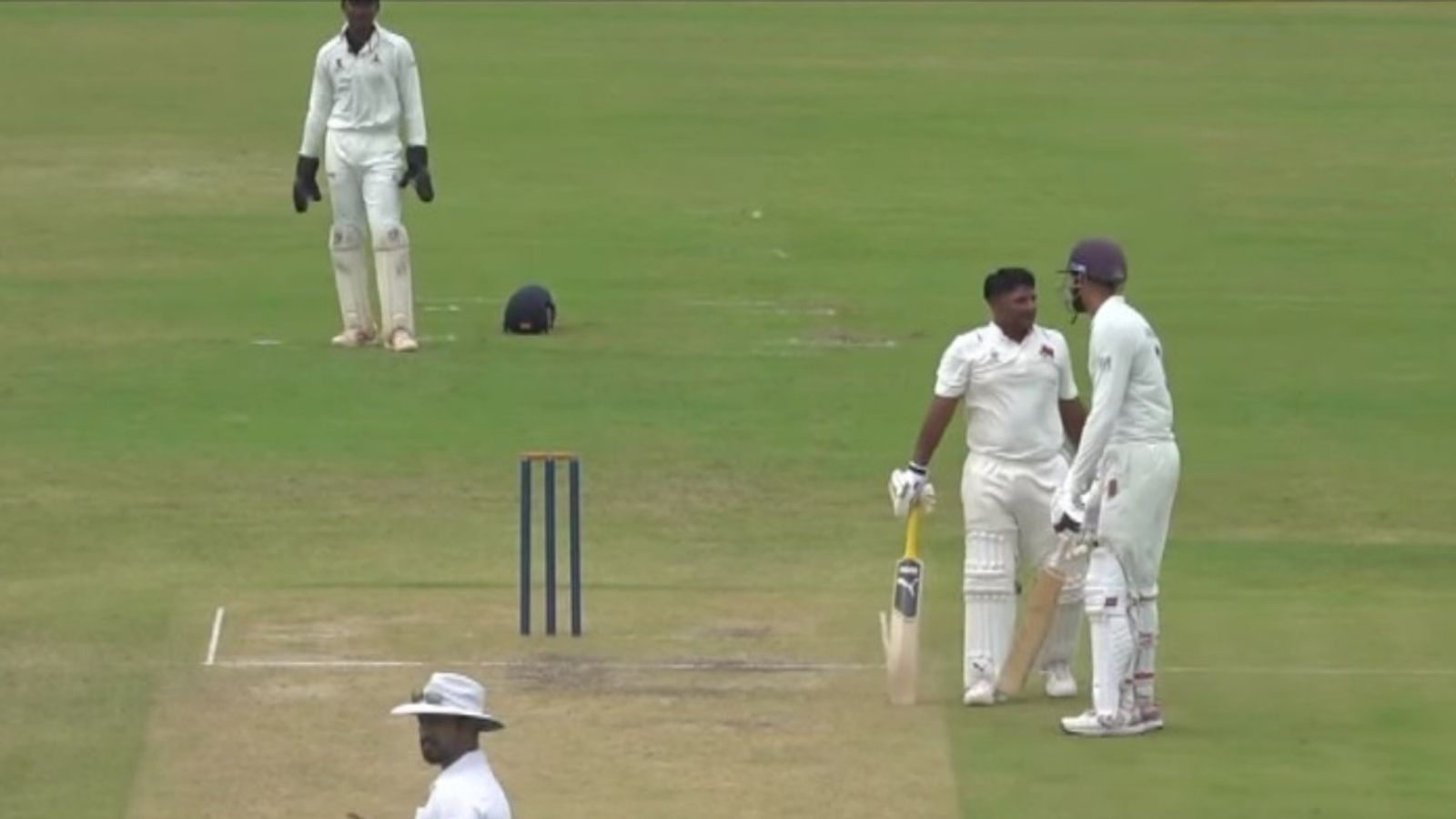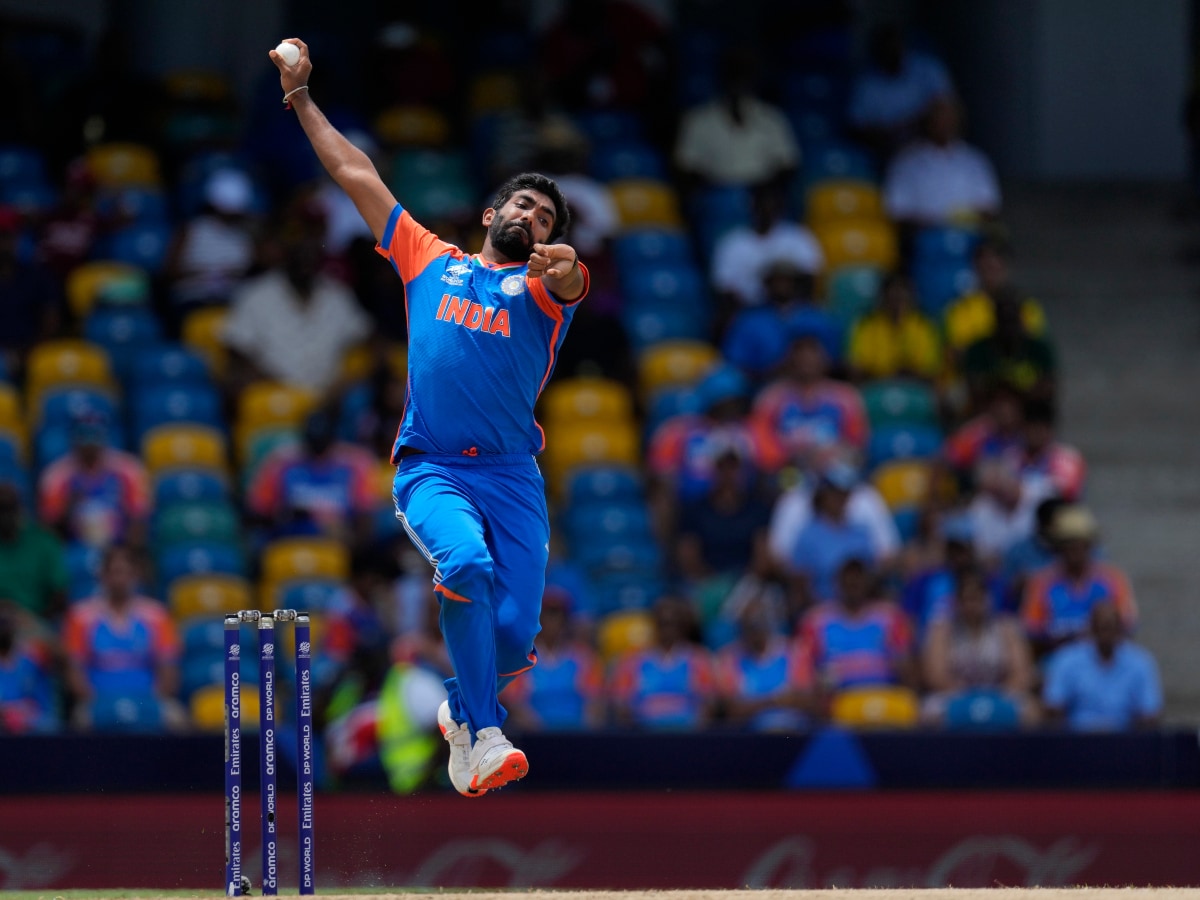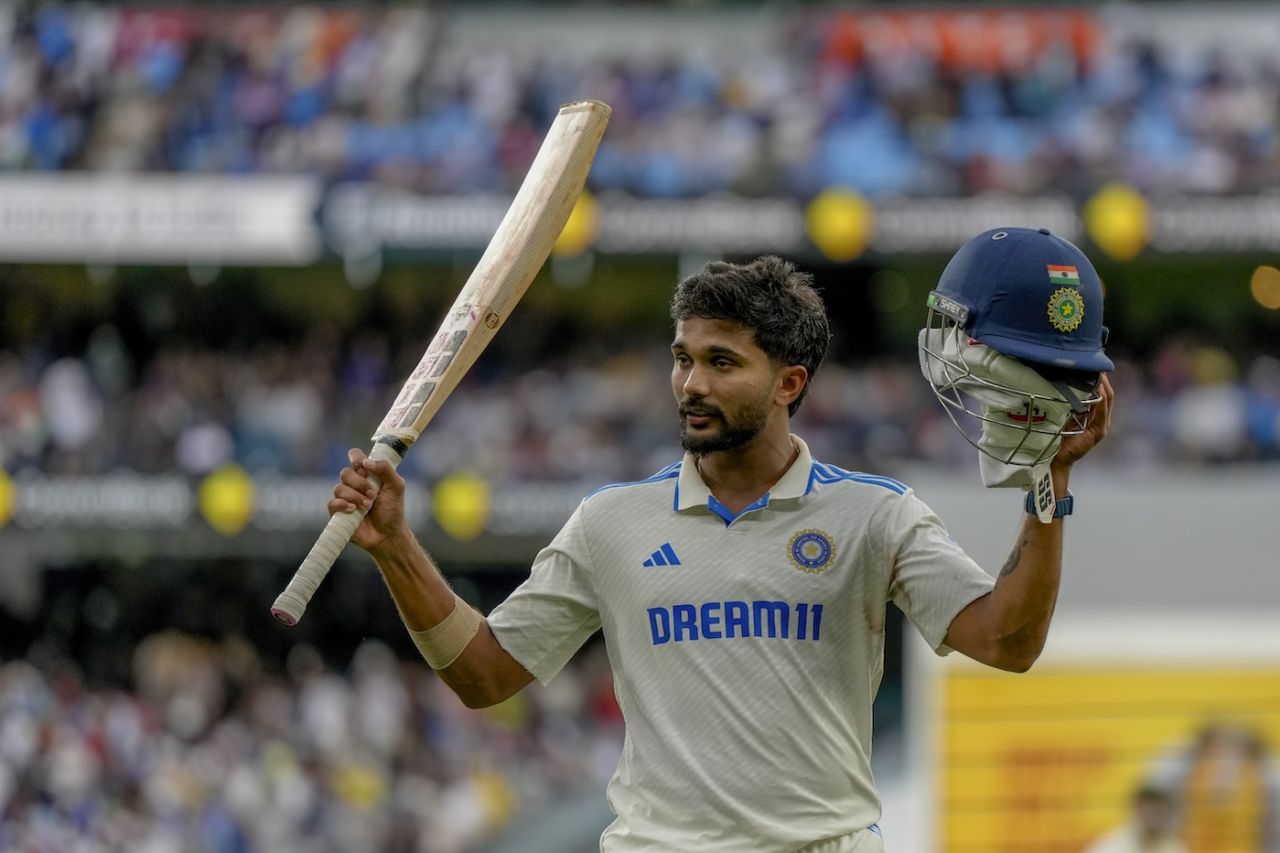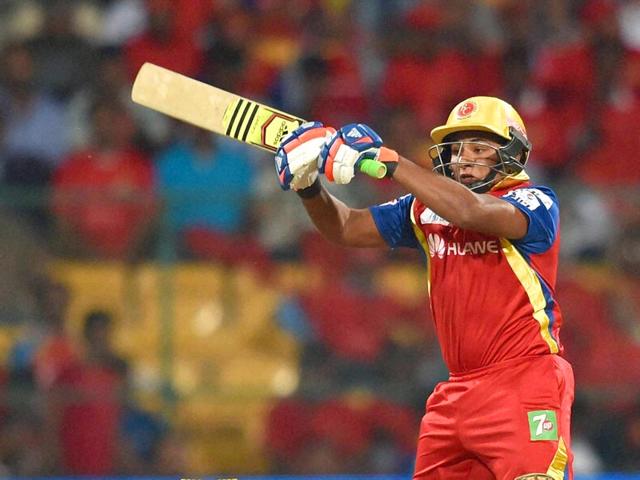Grade A+ (4 Athletes): Rohit Sharma, Virat Kohli, Jasprit Bumrah and Ravindra Jadeja
When the media burst out, trolling India's pride after registering their lowest first-inning score, Sarfaraz Khan stepped in with purpose. A three-ball duck in the first inning was compensated by his maiden hundred in the second. It was an innings that not only marked Khan's power but gave India a balanced position, aiding bowlers to give a fight in the last inning.
The moment of triumph came in the 57th over when he sliced Tim Southee's delivery past the boundary line. The crowd waited for that scene—a joyous Sarfaraz running over the field with his helmet off his head and his bat held high with pride. It seemed like an acknowledgment of the years of hard work and patience, and the crowd probably looked at it as their own personal achievement.
Sarfaraz Khan left the field scoring a glamorous 150 runs, leaving imprints of his footmark on the circuit of Indian Cricket- as a face for grit, determination, and relentless spirit
The Struggles of Domestic Cricket
/sportzpoint/media/media_files/2024/10/19/LGZjWogZ9oh1Hdyn2nLq.webp)
Sarfaraz's road to international cricket was nothing fairy. The domestic cricket circuit got used to the duel between a well-exposed talent and the "don't want to see" selectors. Sarfaraz, a blossoming talent, has a first-class average hovering above 70.
After initially playing for Mumbai, Sarfaraz switched allegiances to Uttar Pradesh, hoping for a fast movement towards the international senior team. However, it didn’t bring the results he expected.
Injuries and fitness concerns slowed down his progress. But despite these setbacks, Sarfaraz never lost faith in his abilities. Over the next four domestic seasons, he crafted several memorable innings, including a match-winning double-century in the prestigious Irani Trophy. His performances in the Ranji Trophy were monumental, earning him the highest praise, but his phone remained silent when it came to national selection.
Sarfaraz Khan has featured in over 40 matches in first-class cricket and has scored over 3,600 runs. He has 14 centuries to his name with a best score of 301 not out.
Childhood Dreams on Mumbai's Dusty Fields
/sportzpoint/media/media_files/2024/10/19/ZrmEkQIoYe72JChg9LfM.jpeg)
The dusty fields of Mumbai have once nurtured Sarfaraz's love for cricket as it did for present-day legends like Sachin Tendulkar, Sunil Gavaskar, and Rohit Sharma. Growing up in the humble neighborhood of Kurla, Sarfaraz's father, Naushad Khan, is a coach by profession. But definitely the first coach to his two sons—guiding them to become cricketers.
Sarfaraz first came to the limelight in 2009 when, as a 12-year-old, he broke the record in the Harris Shield tournament by scoring a breathtaking 439 runs. With that, the expectations of him increased. People started comparing him with "God" Tendulkar, who had famously scored 346 in the same tournament.
When expectations feel like burdens, Sarfaraz managed to shine under them as he continued playing for his school team, Rizvi Springfield, and dominated the Under-16 circuit. However, he knew that playing on Mumbai's famous maidans was just the start.
The Mumbai Maidans are cursed with uneven pitches and overlapping games. Sarfaraz, however, pushed his skills. He played against his seniors, accumulating skills and experience.
He knew the legacy he was carrying — the greats who had walked those same grounds. Every run, every century, felt like a step closer to fulfilling a dream, not just his but his father’s as well.
"Abbu's" Dream
/sportzpoint/media/media_files/2024/10/19/3uCoo9fnuEEijlw0TUMG.webp)
Sarfaraz's father, Naushad Khan himself, was a left-handed middle-order batsman and a slow left-hand orthodox spin bowler for the Mumbai domestic team. Even though he is quite popular for his coaching abilities, he failed to gain the heights in cricket.
After his retirement, senior Khan coached many youngsters at Mumbai's Azad Maidan. Iqbal Abdulla, the "Rising Star" from Kolkata Knight Riders' 2011 session, was a product of Khan's coaching.
Former IPL player Kamran Khan, who bowled the first-ever Super Over in the tournament’s history alongside Sri Lankan spinner Ajantha Mendis, was also trained by Naushad Khan in his cricketing infancy.
Anyway, the coach, who is a father too, had his focus strictly on both his sons, Sarfaraz and Musheer. There are sayings like, that those who fail to fulfill their own dreams, give their best to fulfill others'. Naushad chose his two sons to fulfill his unfulfilled dreams.
/sportzpoint/media/media_files/2024/10/19/W3IrcUwOOUFehk1VTPV6.webp)
Naushad dedicated his life to training his sons — Sarfaraz and his brother, Musheer Khan — on Mumbai’s maidans, often spending long hours watching over them. He made countless sacrifices, from managing a tight family budget to pushing his sons through grueling training sessions, always with the hope that they would make it to the top.
Musheer, like his elder brother, is enjoying a great run in the domestics and junior circuit. While being ignored for a long time, Sarfaraz debuted in the team earlier this year, at Rajkot.
Sarfaraz often speaks about how it was his father’s dream first, a dream that didn't come true for Naushad. "It was Abbu’s [my father’s] dream first to play for India,” Sarfaraz said on the day he debuted.
“Unfortunately, that didn’t happen. Things weren’t [financially] that strong at home. Then he thought he would focus on his children, and he worked hard on me... This was the proudest moment of my life.”
Debut and Impact in Test Cricket
/sportzpoint/media/media_files/2024/10/19/sRl5bngUVGruH6qR92OQ.jpg)
In 2024, the wait ended. Sarfaraz Khan got his first call in the test team as a replacement for the injured Ravindra Jadeja and KL Rahul. However, it was not until the third match at Rajkot on February 15 that he got his cap from the legendary Anil Kumble.
In his debut inning, his innings fell short to 62 runs off 66 balls as he got run out on the non-striker's end after a mix-up with eventual centurion Ravindra Jadeja.
When Sarfaraz finally donned the Indian Test cap and jersey, it was the culmination of a decade-long wait. The photo of his father kissing the cap with pride had brought tears to the eyes of many. It was a gift of wait, a wait worthy of anything.
/sportzpoint/media/media_files/2024/10/19/6QOMhu4D5QrAzaO0O7aT.jpg)
In the second inning, he remained unbeaten on 68, another inning marking his presence when the team needed assistance. A partnership between him and another debutant, Dhruv Jurel, guarded India to the required win.
/sportzpoint/media/media_files/2024/10/19/1Q7SwMSSUjbrUVHAp01a.jpg)
Ignored, But not Erased
/sportzpoint/media/media_files/2024/10/19/ol32tASJMo3AtPq0EEzO.jpeg)
Sarfaraz’s journey to the Indian team had been marred by years of being overlooked. Despite dominating domestic cricket for several seasons, he watched as other younger players like Shubman Gill and Yashasvi Jaiswal leapfrogged him to the national stage. He was left in the shadows, waiting for his chance. But the lack of recognition from the Board of Control for Cricket in India (BCCI) never dimmed his resolve. Every time he was ignored, he returned to domestic cricket with even more determination.
His century in Bengaluru was not just an innings; it was a message — one of resilience, perseverance, and grit. Sarfaraz Khan had finally arrived, not just as a cricketer but as a symbol of endurance in the face of adversity. And as the cheers rang out in Bengaluru, one thing was clear: Sarfaraz Khan’s story was far from over.

















